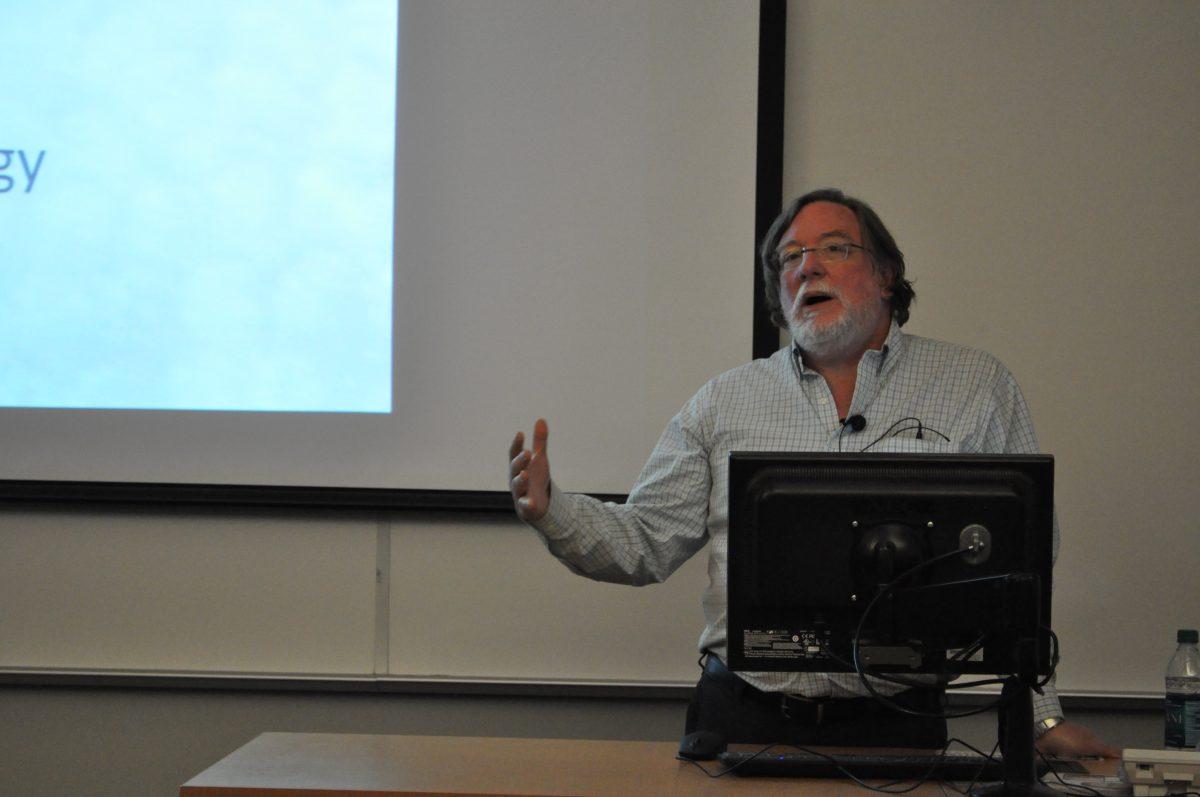Richard Wilk, director of the Food Studies Program at Indiana University, spoke about the complexities of the food movement and its roots in American history in Park Shops Wednesday evening.
The lecture titled “Having Fun with Food: A Brief History of Eating,” was co-sponsored by the Interdisciplinary Studies and International Studies academic divisions.
“In some ways, the local food movement is very traditional and can be classified with countless other western romantic and agrarian responses to the growth of urban mass consumer society, which often portrays nature as the source of purification and the capitalist machine as the enemy,” said Wilk.
Wilk said the “modern industrial food system” had a major effect on the United States, as well as around the world.
According to Wilk, 63 percent of American food consumption is composed of processed foods, and only recently obesity has surpassed malnutrition numbers globally.
He pointed specifically to Belize, where he noted the “nutritional transition” of the Belizean diet.
According to Wilk, diets that consisted of crops grown natively in Belize have transitioned into a diet made up of imported, processed foods. The transition toward processed food has resulted in a rise in obesity, Wilk said.
Wilk said villagers native to Belize are moving away from subsistence farming and transitioning toward working with larger companies to provide money that goes toward cheaper food alternates.
“In the U.S., the food movement has roots in the modern: Grounded in what is called “therapeutic” consumption which is the marriage of health, self-improvement and mass consumerism,” Wilks said.
Wilk said the movement has had many cultural aspects that have been abandoned to conform to the American diet.
Many of the supposed social illnesses in the past were thought to be cured by certain kinds of foods, Wilk said.
He demonstrated the depersonalization of food, as farmers no longer provided us with the food we ate, but rather imaginary geography and fictional characters such as Nature Valley and “Snap, Crackle, Pop.”
He commented on the numerous movements that have grown to combat the “modern industrial food system” such as the Slow Food movement, farmers markets and food activists. He explained the duality of such a complex topic and how both sides had its flaws and success.
“It was important to realize the ‘slow food’ and local movement has deeper historical ties to American agrarianism. I think this will be important in reconnecting to professional agriculture students who normally feel antagonized by ‘foodies’,” said Ezekial Overbaugh, a senior in plant biology.
Helene Ducros, a doctoral student in geography at UNC-Chapel Hill, said she wished the talk had more international perspective.
“I work in rural France with the notion of terroir, which is local heritage,” Ducros said. “I was interested in hearing about the American angle of local food systems. Though it was interesting to learn a lot about American food, I wanted to hear more about the practices of eating, rather than content. More related to how we eat and who we eat with, the practices around food.”





